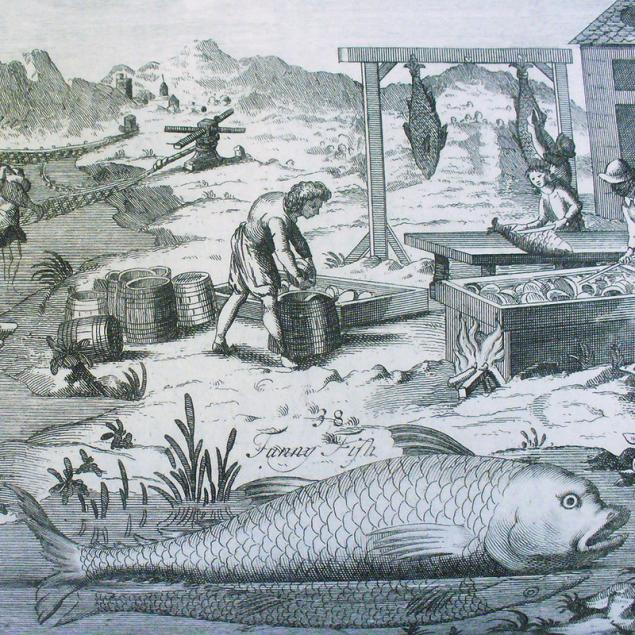469
David Graber — Duty. The first 5,000 years of history
When in the ancient world the people more or less equal social position, lent each other money, then the terms of the loan, as a rule, was very gentle. The interest is often not charged, and if they were, very low.
"And don't bring me a cent, one wealthy, the other hananim in the plate, dated to about 1200 BC, in the end, we are both noble people". Between close relatives many loans, apparently, consisted, as now, the gifts, and no one seriously expected that they will return. Quite another thing — the loans that the rich provided to the poor.

The problem is that, unlike status distinctions like caste or slavery, between rich and poor there is no such clear distinction. You can imagine the reaction of the peasant who came into the house of a wealthy cousin, believing that "people should help each other", and in a year or two he took of the vineyard and led sons and daughters. Legally, this behavior could be justified if the loan were seen not as a form of mutual aid, and as a commercial transaction: the contract is the contract. (It is also demanded to speak to a higher power to enforce the terms of the contract.)
But whatever it was, perceived it only as a terrible betrayal. Moreover, if this behavior was seen as a breach of contract, then the whole thing turned into a moral problem: both sides must be equal, but one of them failed to comply with the terms of the transaction. Psychologically this makes it even more painful lawlessness of the situation of the debtor, because it could say that the fate of his daughter, decided of his own meanness. But the need to discard remorse became even more urgent: "we Have the same body, what body in our brothers, and our sons are just like their sons." We are all the same. We must take into account the needs and interests of others. My brother could do to me?
Particularly compelling moral argument, the debtors could propose in the old Testament. The authors of Deuteronomy constantly reminded their readers, were not the Jews slaves in Egypt and freed them all God? Was it fair to take the land away from others if they got the promised land, which was to be divided? Was it fair that the descendants of the freed slaves enslaved the children to each other? However, in such situations, similar arguments were put forward almost everywhere in the Ancient world: Athens, Rome and even in China, where, according to legend, the ancient Emperor invented the minting of coins in order to redeem the children of families forced to sell them after a series of devastating floods.
Almost throughout the history of open political conflict between classes was clothed in requirement of debt relief, i.e. the liberation of those who were in captivity, as well as a more equitable distribution of land. In the Bible and other religious traditions, we see traces of the moral arguments that justify these requirements: they can be clothed in many different forms, but always somehow expressed in the language of the market.
excerpt from the book © David Graber "Debt. The first 5,000 years"
P. S. And remember, only by changing their consumption — together we change the world! ©
Source: theoryandpractice.ru
"And don't bring me a cent, one wealthy, the other hananim in the plate, dated to about 1200 BC, in the end, we are both noble people". Between close relatives many loans, apparently, consisted, as now, the gifts, and no one seriously expected that they will return. Quite another thing — the loans that the rich provided to the poor.

The problem is that, unlike status distinctions like caste or slavery, between rich and poor there is no such clear distinction. You can imagine the reaction of the peasant who came into the house of a wealthy cousin, believing that "people should help each other", and in a year or two he took of the vineyard and led sons and daughters. Legally, this behavior could be justified if the loan were seen not as a form of mutual aid, and as a commercial transaction: the contract is the contract. (It is also demanded to speak to a higher power to enforce the terms of the contract.)
But whatever it was, perceived it only as a terrible betrayal. Moreover, if this behavior was seen as a breach of contract, then the whole thing turned into a moral problem: both sides must be equal, but one of them failed to comply with the terms of the transaction. Psychologically this makes it even more painful lawlessness of the situation of the debtor, because it could say that the fate of his daughter, decided of his own meanness. But the need to discard remorse became even more urgent: "we Have the same body, what body in our brothers, and our sons are just like their sons." We are all the same. We must take into account the needs and interests of others. My brother could do to me?
Particularly compelling moral argument, the debtors could propose in the old Testament. The authors of Deuteronomy constantly reminded their readers, were not the Jews slaves in Egypt and freed them all God? Was it fair to take the land away from others if they got the promised land, which was to be divided? Was it fair that the descendants of the freed slaves enslaved the children to each other? However, in such situations, similar arguments were put forward almost everywhere in the Ancient world: Athens, Rome and even in China, where, according to legend, the ancient Emperor invented the minting of coins in order to redeem the children of families forced to sell them after a series of devastating floods.
Almost throughout the history of open political conflict between classes was clothed in requirement of debt relief, i.e. the liberation of those who were in captivity, as well as a more equitable distribution of land. In the Bible and other religious traditions, we see traces of the moral arguments that justify these requirements: they can be clothed in many different forms, but always somehow expressed in the language of the market.
excerpt from the book © David Graber "Debt. The first 5,000 years"
P. S. And remember, only by changing their consumption — together we change the world! ©
Source: theoryandpractice.ru























